Foreign secretary James Cleverly mocked by BBC as he struggles to explain PM’s prices plan
Radio 4 interviewer laughs during Cleverly’s bid to defend Sunak
Your support helps us to tell the story
From reproductive rights to climate change to Big Tech, The Independent is on the ground when the story is developing. Whether it's investigating the financials of Elon Musk's pro-Trump PAC or producing our latest documentary, 'The A Word', which shines a light on the American women fighting for reproductive rights, we know how important it is to parse out the facts from the messaging.
At such a critical moment in US history, we need reporters on the ground. Your donation allows us to keep sending journalists to speak to both sides of the story.
The Independent is trusted by Americans across the entire political spectrum. And unlike many other quality news outlets, we choose not to lock Americans out of our reporting and analysis with paywalls. We believe quality journalism should be available to everyone, paid for by those who can afford it.
Your support makes all the difference.Floundering foreign secretary James Cleverly was left red faced in a bruising BBC interview when he was put on the spot over the inflation crisis.
Challenged six times to say how Rishi Sunak planned to cut price rises, Mr Cleverly stumbled in his replies – and was at one point greeted with laughter by BBC Radio 4 interviewer Amol Rajan.
Eventually Mr Rajan ended the interview abruptly, silencing Mr Cleverly and saying: “We’re going to the weather.”
Their painful exchange in full
Amol Rajan: ‘What is the PM’s plan to halve inflation?’
James Cleverly: ‘By making sure the economy is more productive economy, through, er, training, through um, er, er, you know, apprenticeships...’
AR: ‘That won’t bring inflation down. What is the PM planning to do about it?’
JC: ‘You have to deal with things in the short, medium and long term.’
AR: ‘Yes, so what is the PM’s plan?’
JC: ‘As I, er, say, er, the, er, point is, with things like, erm, driving down the implications of, er, you know, fuel and food.’
AR: ‘Sorry ... what is the PM’s short-term plan?’
JC: ‘Well, one of the things we, er, one of the main vehicles for short term, er, addressing inflation is interest rates…’
AR: ‘The PM doesn’t control that so what is his plan, what is he going to do?’
JC: ‘Not all the levers of control are in the government’s hands…’
AR heard laughing in the background
JC: ‘… the choice was made to have an independent Bank of England.’
AR (sarcastically): ‘I really appreciate the economics lesson about the decision to make the Bank of England independent in the 1990s ... What is the PM doing to get inflation down?’
JC: ‘One of the reasons we have been thoughtful and cautious on public sector pay awards is that we knew it’s one of those things that brings inflationary pressures ... that is in stark comparison to the Labour party.’
At this point a clearly exasperated AR tries to end the the interview.
JC: ‘We have over many, many decades got used to large-scale, relatively low-skilled inflation [sic] – that has had a drag effect on productivity…’
AR: ‘We have to go to the weather.’
Tongue-tied Mr Cleverly mistakenly talked about “low-skilled inflation” harming the economy, when he meant to say “low-skilled immigration”.
Mr Rajan became so frustrated with Mr Cleverly’s evasiveness that he sarcastically thanked him for “giving me an economics lesson”.
Interviewed on the Today programme ahead of the Bank of England’s expected interest rate rise, Mr Rajan asked him: “What is the PM’s plan to halve inflation?”
Mr Cleverly intially said it was about “influencing” events. He argued that helping resolve the Ukraine conflict would be “a contributory factor” in getting inflation down.
He also said: “By making sure the economy is more productive economy, through, er, training, through um, er, er, you know, apprenticeship work...”
The BBC host fired back: “That’s not going to bring inflation down.”
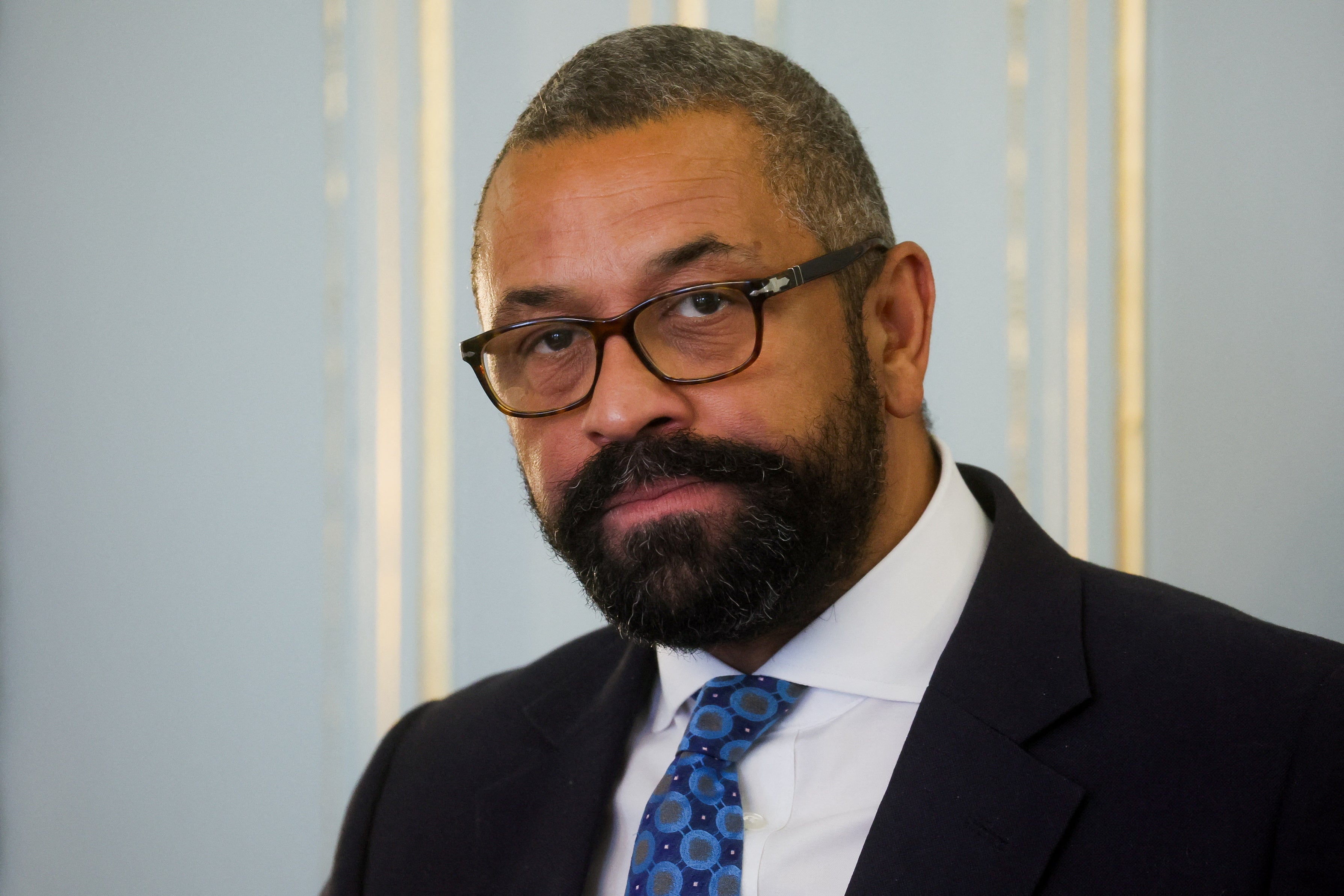
Pressed again Mr Rajan what Mr Sunak would do about inflation in the short-term, Mr Cleverly said: “As I, er, say, er, the, er, point is, with things like, erm, driving down the implications of, et, you know, fuel and food.”
The minister was told by the Today programme presenter that core inflation in the UK was worse that neighbouring countries, and was asked again what the government was doing about it. The cabinet minister said: “One of the main vehicles for short-term addressing of inflation is interest rates.”
Reminded that Mr Sunak did not set interest rates – and pressed again for steps taken by government – Mr Cleverly said: “Not all the levers of control are in the government’s hands.”
Mr Rajan could be heard laughing at the response. The BBC host thanking him for the “economics lesson” on the independence of the Bank of England, before pressing him once again for the short-term measures made by Mr Sunak.
Mr Cleverly said the government had been “cautious on public-sector pay awards” to keep inflation down, adding: “We’re very conscious that increased government borrowing is one of those things that loops around and increases inflationary pressures.”
Asked whether post-Brexit immigration rules could be relaxed, Mr Cleverly dismissed the idea and said longer-term measures to boost Britain’s productivity were vital.
Mr Rajan cut off the minister and said: “Forgive me, we’ve got to go to the weather.”
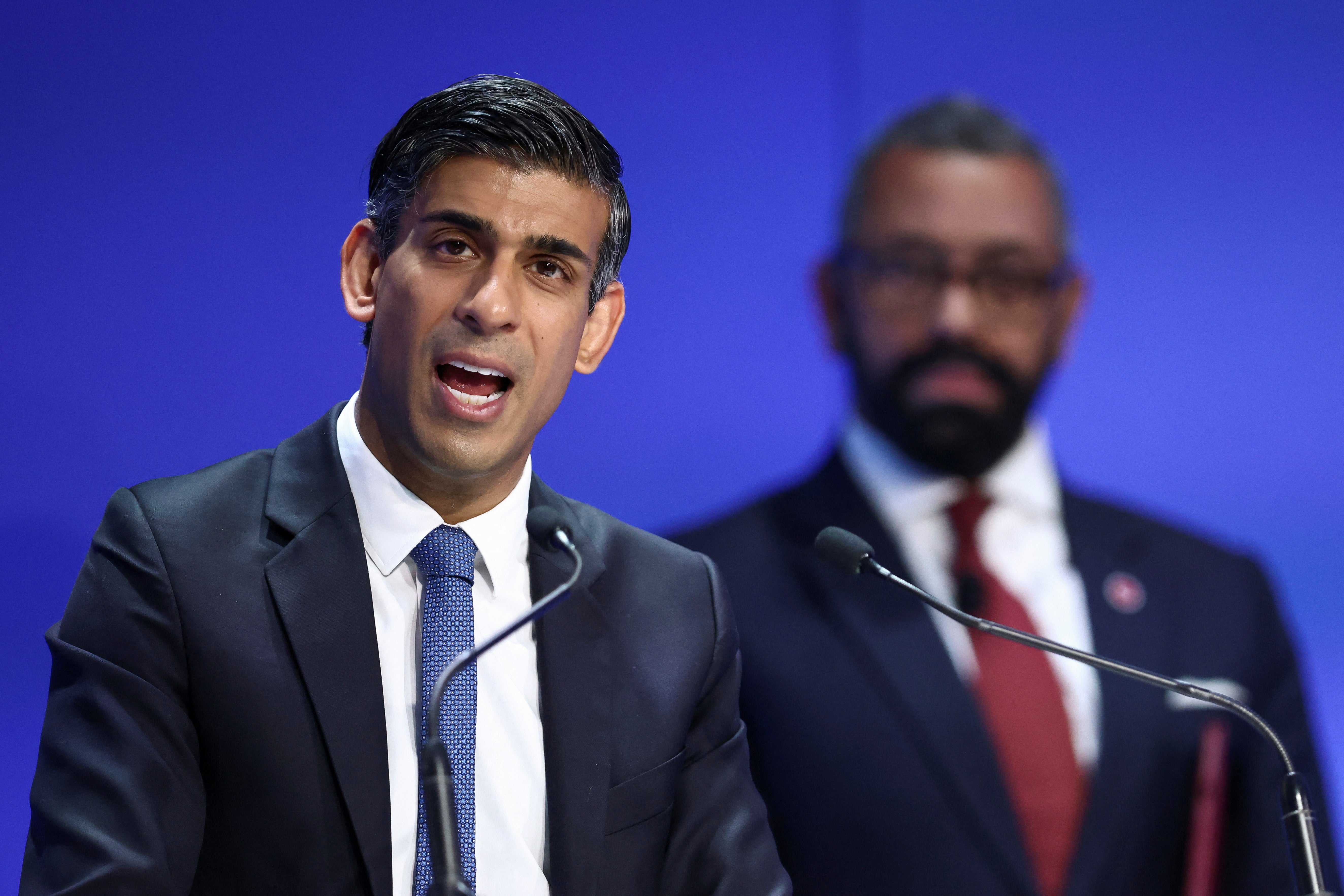
Mr Sunak promise to halve inflation by the end of 2023 as one of his five big pledges to the electorate. He made the pledge in January, when the latest inflation figure was 10.7 per cent, but price rises have come down more slowly than expected since then.
The Bank of England is set to hike interest rates for the 13th time in a row today after shock inflation figures showed price rises frozen at 8.7 per cent.
An increase from 4.5 per cent to 4.75 per cent is most likely when governor Andrew Bailey announces the decision at 12 noon – but a larger hike to 5 per cent is a possibility.
Top economists – including one Jeremy Hunt’s senior advisers – have said the Bank of England has no choice but to trigger a recession in order to finally tame inflation.
Karen Ward, a member of the chancellor’s economic advisory council, said the central needed to “create a recession”, adding: “There’s no other way around it.”
But Mr Cleverly rubbished suggestions that the UK should intentionally aim to enter a recession with high interest rates to tackle persistently high inflation.
Speaking to Sky News, he said triggering a recession was not the answer. “What we need to do is we need to grow the economy,” he said. “High interest rates don’t help with that.”
Subscribe to Independent Premium to bookmark this article
Want to bookmark your favourite articles and stories to read or reference later? Start your Independent Premium subscription today.

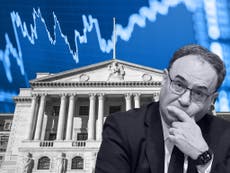

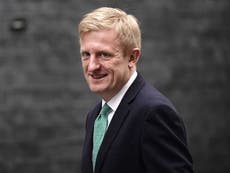
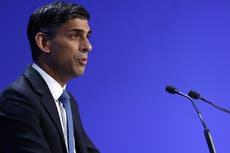
Join our commenting forum
Join thought-provoking conversations, follow other Independent readers and see their replies
Comments